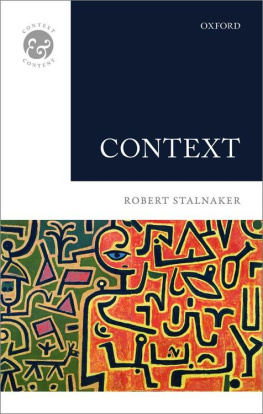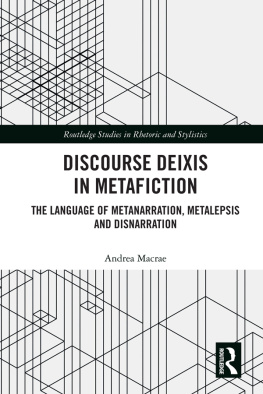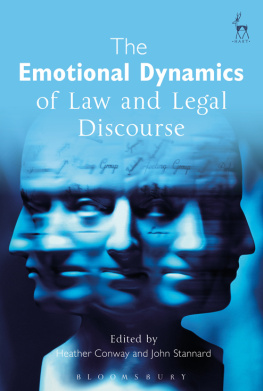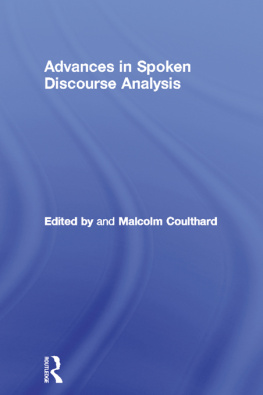Oxford University Press is a department of the University of Oxford.
It furthers the University's objective of excellence in research, scholarship,
and education by publishing worldwide. Oxford is a registered trade mark of
Oxford University Press in the UK and in certain other countries
Robert C. Stalnaker 2014
All rights reserved. No part of this publication may be reproduced, stored in
a retrieval system, or transmitted, in any form or by any means, without the
prior permission in writing of Oxford University Press, or as expressly permitted
by law, by licence or under terms agreed with the appropriate reprographics
rights organization. Enquiries concerning reproduction outside the scope of the
above should be sent to the Rights Department, Oxford University Press, at the
address above
This book had its roots in work begun more than forty years ago on presupposition and assertion, and I have been tinkering with the ideas I sketched then, off and on, ever since. I am grateful for the opportunity provided by Franois Recanati to further develop these ideas in a set of lectures in his Content and Context series. I benefited from stimulating discussion at those lectures from, among others, Herb Clark, Kathrin Gler-Pagin, Peter Pagin, Franois Recanati, and Isadora Stojanovic. These four lectures, given in Paris in 2010, grew to six when I gave the Gaos lectures the next year in Mexico City at the Instituto de Investigaciones Filficas at the Universidad Nacional Autnoma de Mexico. I am grateful to the philosophers of language at the UNAM for the invitation to give these lectures, and for the stimulating discussions that I had with them during my month there. Thanks also to the philosophers at Brown University where earlier versions of three of the chapters constituted the Josiah Royce lectures, given there in 2007.
The 1970s, when I first started thinking about pragmatics, were exciting times in the philosophy of language, with a lot of fruitful interaction between philosophers and linguists, who were just inventing theoretical semantics and pragmatics as it is practiced today. Among the linguists who helped to draw me into the subject at that time and to appreciate the relevance of their work to philosophical issues were Lauri Karttunen, George Lakoff, Barbara Partee, Stan Peters, and Sally McConnell-Ginet.
Philosophers and linguists tended to go their separate ways in the decade after the 1970s, but from the early 90s to the present, interdisciplinary work in semantics/pragmatics, and philosophical uses of linguistic results have again flourished. Interdisciplinary work is more demanding than it was in the 70s, since a lot of sophisticated theory has been developed since then, and alternative frameworks have proliferated. But I have had a lot of help from the work of many linguists, and from discussion with them, including Angelika Kratzer, Paul Portner, Craige Roberts, Philippe Schlenker, Mandy Simons, and my MIT colleagues, Kai von Fintel, Danny Fox, Irene Heim, and Sabine Iatridou.
Among philosophers, my debts to Paul Grice, David Kaplan, David Lewis, John Perry, and Mark Richard will be evident from the discussion in the book of their work and ideas.
I and my colleagues in philosophy at MIT have been fortunate to have a really excellent group of graduate students over the past few decades, many of whom have made and are making important contributions to the fast moving interdisciplinary field of pragmatics. Their work, and discussion with them while they were students and since, have had a profound, and I hope positive, influence on the ideas that I develop in this book. This group, going back more than twenty years, includes Lenny Clapp, Andy Egan, Sarah Moss, Dilip Ninan, Alejandro Prez Carballo, Agustn Rayo, Paolo Santorio, Jason Stanley, Eric Swanson, Zoltan Gendler Szab, and Seth Yalcin.
Craige Roberts read a complete draft of the manuscript, and gave me extremely helpful comments that led to major revision and reorganization. The ideas developed in were strongly influenced by Seth Yalcins work on epistemic modals, and extensive correspondence and discussion with him about these issues led to significant corrections and (I hope) improvements. Thanks to both Craige and Seth for their help.
A version of . Thanks to Oxford University Press for permission to include parts of that paper in this book.
Thanks to my editor, Peter Momtchiloff for advice, support, and patience. Thanks also to Jan Chamier for meticulous copy editing, and to Jack Marley-Payne for editorial help at the last stage of the process, including compiling the index.
This book is an exploration of the contexts in which speech takes place, of the ways we represent them, and of the roles they play in explaining the interpretation and dynamics of speech. In this introductory overview, my aim is to provide a sketch of the general line of argument of the book, the narrative, as they say. Or perhaps I should say that my aim is to set the argument of the book in context.
The central thesis that guides the exploration is that it is possible and fruitful to theorize about the structure and function of discourse independently of specific theory about the mechanisms that languages use to serve those functions. This rough statement of the thesis (which I will dub the autonomy of pragmatics) needs to be refined and qualified, which I will try to do in the course of the book. I will defend the thesis mainly by developing some pragmatic theory that I hope will illustrate it, and by applying that theory to the explanation of a range of specific linguistic phenomena. The thesis needs qualification since the data to be explained by such a theory are always data concerning the uses of particular expressions of particular languages, and interpreting the data requires making some assumptions about the semantics of the expressions involved, but the hope is that one can sometimes defend and apply purely pragmatic principles while making only relatively uncontroversial assumptions about the semantics. Even though the focus will be on pragmatic explanation, the interaction of context with semantic interpretation will be a central concern of the book.













